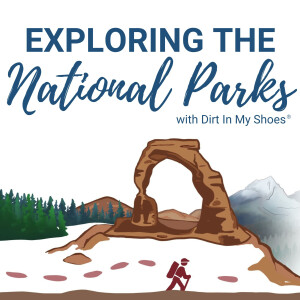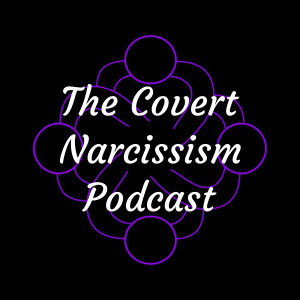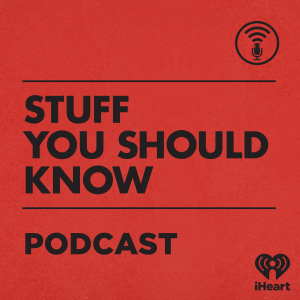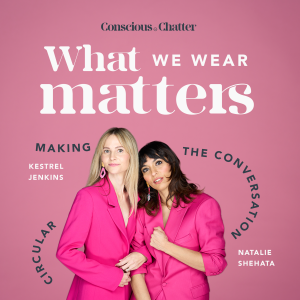
In episode 280, Kestrel welcomes Nadia Bunyan, a fashion designer & the cofounder of Growing A.R.C., to the show. Growing A.R.C. is a nonprofit that creates spaces and opportunities for people to activate, reciprocate and cultivate their relationships with all beings. Through plants, material culture, and bioregional design, they are engaging in a conversation on sustainability through active participation.
What started as an experiment – tossing some flax seeds into the ground in the backyard, has now led to the creation of a community-oriented nonprofit, that’s using the concept of farm to closet to shift peoples’ mindset on consumption; reinforcing their connection to the local environment and expanding their understanding of biodiversity to include the diversity of human perspectives, and experiences from diverse communities (because while we are trained otherwise, yes – we, humans, are also a part of nature).
Nadia gives us an education on the need to try new things, to jump in without the fear of making mistakes, and to embrace those so-called *failures* along the way. As she tells us, “No expert becomes an expert without first having tried something.”
With over 20 years of experience working as a fashion designer, she started growing flax – has now harvested it with other collaborators, and is working toward spinning and weaving it into linen fabric.
Such a reminder that there is so much beauty that can be found through the act of stepping outside of your comfort zone and opening yourself up to learning new things.
Quotes & links from the conversation:
-
“You can plant, you can craft, you can knit, you can do what have you. But we’re around each other and in those moments, we’re talking. And that’s the cultivation — not just of the plant, but of community. You need to put into your community, you need to support, you need to create spaces for that to happen, and you need to give space for that to grow.” -Nadia (25:38)
-
“So, to grow the flax, it’s a period of about 80-90 days, to get it to the right maturity, so that you have fiber. And that changes, depending. You can harvest the flax at different times, depending on how fine you want the flax to be. Full germination to get seeds is 100 days. So, when you take it out at 100 days, then you have the seeds, but you’re gonna have a very rough kind of fiber. We’ve experimented with both and left some plants in a little longer so that we would have seeds for next year, and also to see how thick that fiber is going to be.” -Nadia (36:48)
-
“How the pandemic transformed one Montrealer's relationship to her backyard and her world”, article in CBC that features Nadia
-
Interview with Nadia on CBC, starts at around 12 minutes into the video
-
Follow Growing A.R.C. on Facebook >
-
Follow Nadia on Instagram >
-
Follow Growing A.R.C. on Instagram >
More Episodes
Motherhood, entrepreneurship & sustainability: navigating impossible expectations while caring for yourself and others, and building things that center care
 2024-10-29
2024-10-29
Kestrel on vulnerability, personal health, podcast evolutions & a question to sustainable fashion folks: are you OK?
 2024-10-15
2024-10-15
Nelson ZêPequéno of Black Men With Gardens and Cayetano Talavera of Hecho By Caye on why fashion needs to listen to nature’s lessons on slowing down, tuning in, practicing patience & cultivating creativity to better center sustainability
 2024-07-02
2024-07-02
Teju Adisa-Farrar of Black Fiber & Textile Network and Author Layla K. Feghali on geography and what our relationship to place can teach us about *sustainability*
 2024-06-11
2024-06-11
Wafa Ghnaim of Tatreez and Tea & Dr. Tanveer Ahmed of Central Saint Martins on preserving culture, decolonial frameworks, and how intersectional reform can be a pathway toward sustainable fashion futures
 2024-04-23
2024-04-23
Sustainable fashion podcasters unite — Emily Stochl of Pre-Loved Podcast & Stella Hertantyo of Conscious Style Podcast help us reflect on 11 years since Rana Plaza, celebrating collective movements & ways to focus our continued advocacy
 2024-04-09
2024-04-09
Upcycling artists Francisco Alcazar & Ella Wiznia of Series NY are redefining sustainable fashion while reimagining craft & challenging the gender binary
 2024-03-26
2024-03-26
How gender plays into the devaluing of knowledge and its links to sustainable fashion & wellness with Megan Schnitker of Lakota Made and Niha Elety of Tega Collective
 2024-03-12
2024-03-12
Celebrating the cultural tradition, past and present, of Palestinian Tatreez with artists / educators Lina Barkawi and Eman Toom & why sustainable fashion must include cultural sustainability
 2024-02-27
2024-02-27
Intergenerational knowledge & sustainable fashion — how clothing is more than just aesthetics; it’s about the upholding of cultural practices and the amplifying of knowledge & traditions
 2024-02-13
2024-02-13
Vintage stylist Beth Jones & Dounia Wone of Vestiaire Collective on whether fast fashion brands fit into the resale experience
 2024-01-30
2024-01-30
Why self work is integral to advocating for transformation in fashion & why we must deeply question our personal values to truly get active in creating a more sustainable fashion future
 2024-01-16
2024-01-16
Denali Jöel on fashion as an art praxis rooted in Afro-Indigenous philosophies, interrogating the emphasis placed on the *industry* & reminding us of the possibility of creating new ecosystems
 2023-11-07
2023-11-07
Julius Tillery aka the "Puff Daddy Of Cotton" on the need to remix both the perception of the cotton industry and the business model
 2023-10-30
2023-10-30
Cassandra Pintro of Consumption Project on welcoming her community to challenge their buying habits and question what is *enough*
 2023-10-24
2023-10-24
Jeanell English on navigating the pressure to project a certain image in business & across climate spaces and balancing the worlds of activists & execs as a leader in impact
 2023-10-17
2023-10-17
Muchaneta Ten Napel on utilizing tech as a tool to change how fashion does business, not a crutch that will *save us all* & preparing for the fashion policy changes that are on the horizon
 2023-10-10
2023-10-10
*Breaking It Down* with Rachel Arthur, lead author of The Sustainable Fashion Communication Playbook, an actionable guide co-published by UNEP and UN Climate Change
 2023-09-26
2023-09-26
Tameka Peoples of Seed2Shirt on rebuilding equitable + just cotton systems & fostering the reclamation of cotton acreage for Black farmers
 2023-09-19
2023-09-19
Lisa Diegel, Global Sustainability Director, on Faherty's Native Initiatives, what mutually beneficial relationships can look like in practice, and the nuanced ways brands must take responsibility for the products they put out into the world
 2023-09-12
2023-09-12
Create your
podcast in
minutes
- Full-featured podcast site
- Unlimited storage and bandwidth
- Comprehensive podcast stats
- Distribute to Apple Podcasts, Spotify, and more
- Make money with your podcast
It is Free
You may also like

Exploring the National Parks


The Covert Narcissism Podcast


Greece Travel Secrets Podcast


Stuff You Should Know


Timcast IRL


- Privacy Policy
- Cookie Policy
- Terms of Use
- Consent Preferences
- Copyright © 2015-2024 Podbean.com



 iOS
iOS Android
Android